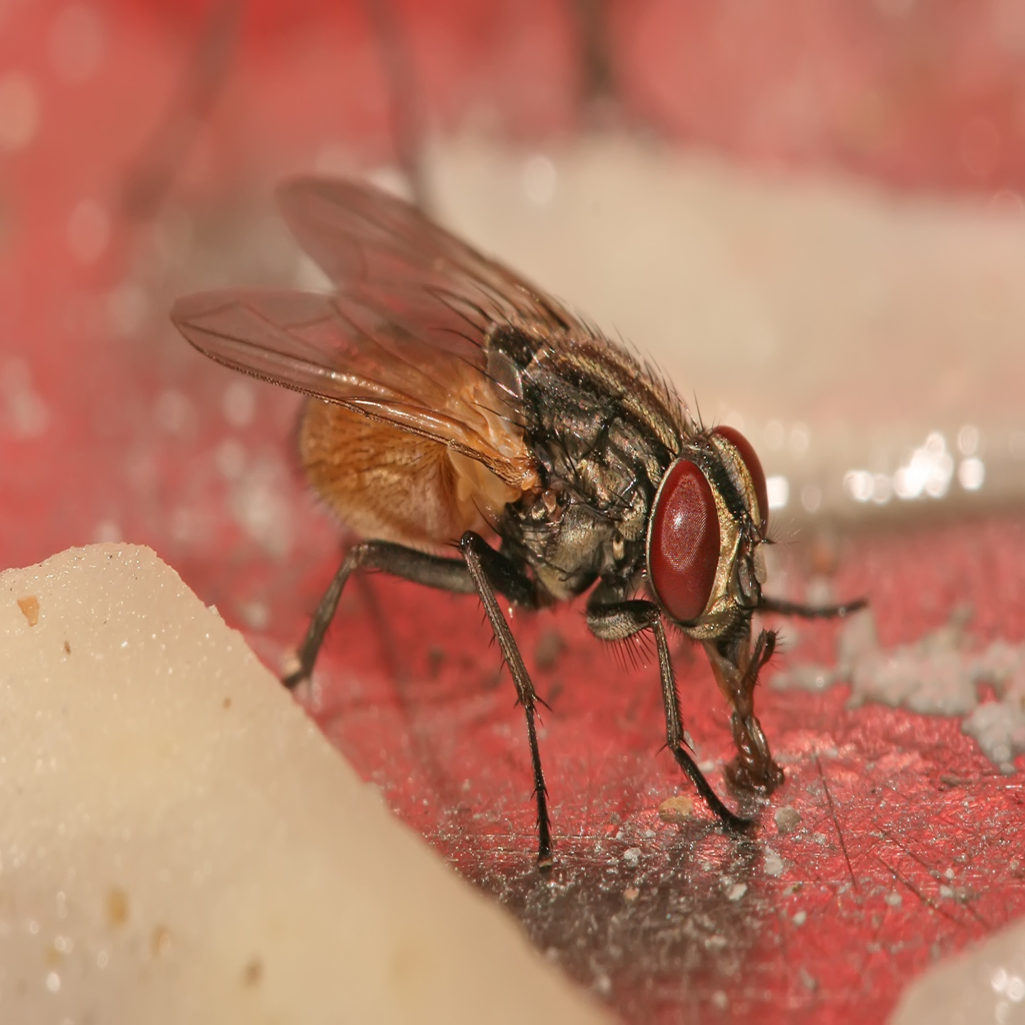The Common Housefly can be a huge nuisance and spread over 100 diseases. Here’s a little history on houseflies and what you can do to limit the exposure to dangerous diseases.
Where are Houseflies From and What Do They Look Like?
It is believed that the common housefly evolved in the Middle East during the Cenozoic era. From there it has travelled the world over. The adult housefly has a distinctive look. They have 4 dark longitudinal lines on their thorax. They may be grey or black in color. Also, their bodies have hair like fibers all over it. Their wings are a single pair and are membranous. Their eyes are red and the females are set slightly further apart than the males.
Housefly Mating
The female housefly mates one time and stores the sperm for later use. Each batch of eggs is about 75 to 150. They usually lay about 500 eggs in a lifetime. The eggs are played in garbage, feces or other decaying organic matter. First, they are larvae, then pupae, then finally a fly.
Dangerous Relationship With Humans
The housefly creates health problems for humans in several ways. First they are capable of transmitting 100 diseases (pathogens) that include some nasty ones like Cholera, Tuberculosis, Typhoid and more! These parasitic, bacterial and viral illness can make humans sick and have the potential to kill.
We believe that all animals and pests have place intros world. But protecting your family and home is a priority. So how can you reduce the chance of getting ill from a housefly?
Protecting Your Family
- Make sure entry points are sealed. Screens are replaced when worn or torn. Use screen doors on doors.
- Keep your space clean of trash debris. Keep trash cans covered and sanitized. If you have a housefly wash and sanitize eating prep areas.
- Clean up dog poop. Don’t left your yard be a breeding ground for flies by scooping the poop.
- Call for help. If you find that your home or business has been infected with houseflies call Absolute Pest Control for help. Our trained technicians will find the best solution for your problem.
Le tis know if we can be of any help with houseflies or any other pest. Thanks for reading about houseflies in our monthly series.
615-220-1933
Or Contact Us by Clicking HERE
Read more information about houseflies HERE




